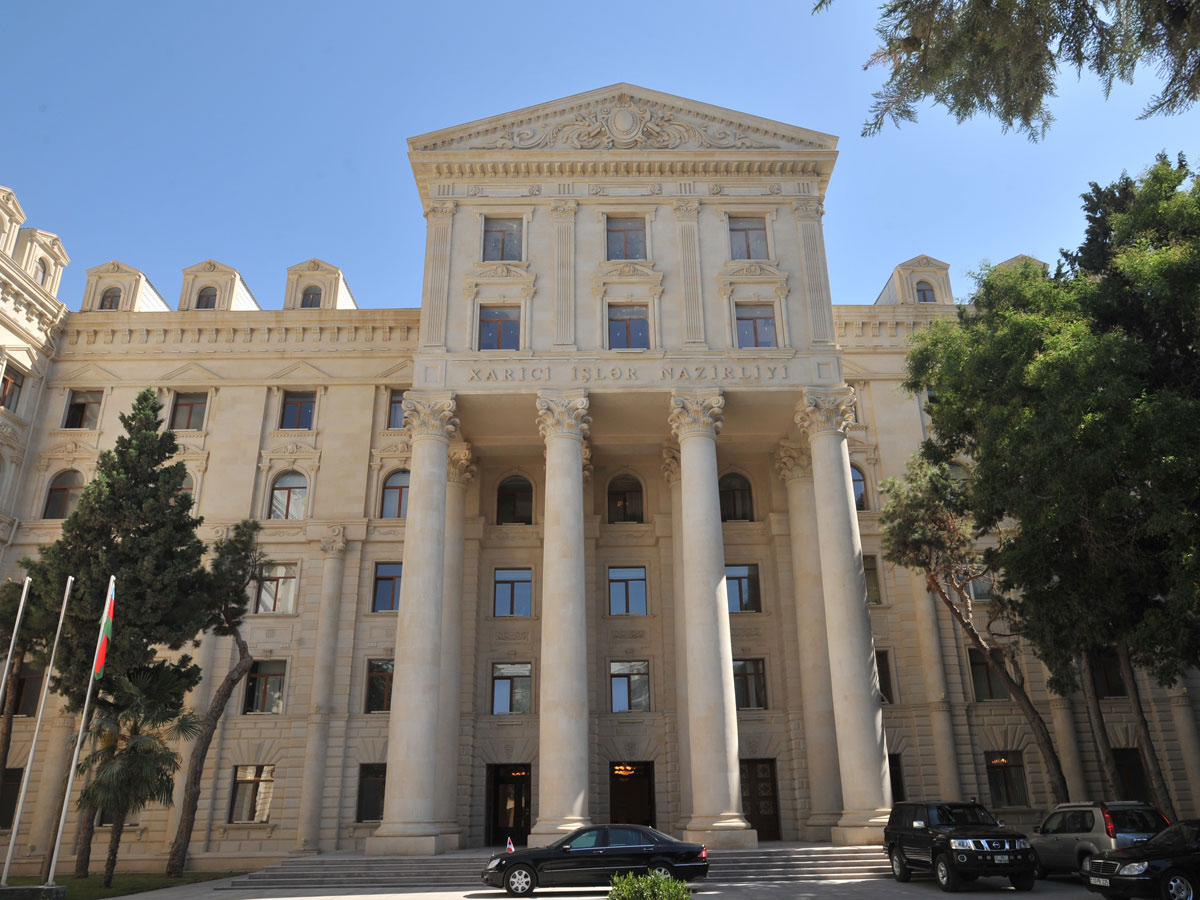Baku, Azerbaijan, Jan. 25
Trend:
Armenia's military and political leadership is criminally responsible for committing the Khojaly tragedy, spokesman for the Azerbaijani Foreign Ministry, Hikmat Hajiyev, said Jan. 25.
"Taking into account that the Armenian leadership and Foreign Ministry have institutional memory loss or amnesia, I would like to remind them of the statement of the then Minister of Defense and now incumbent Armenian President Serzh Sargsyan to British journalist Thomas de Waal," he said.
Hajiyev said that Sargsyan's words have been quoted in the book by Thomas de Waal, titled "Black Garden: Armenia and Azerbaijan through Peace and War" (New York and London, New York University Press, 2003, p. 172).
Sargsyan's words are as follows: "[B]efore Khojali, the Azerbaijanis thought that ... the Armenians were people who could not raise their hand against the civilian population. We were able to break that [stereotype]."
Hajiyev said that the brother of the Armenian national hero, terrorist Monte Melkonian - Markar Melkonian, quoted Monte Melkonian, who was one of the participants in the Khojaly genocide in his book "My Brother's Road: An American's Fateful Journey to Armenia" (London and New York, IB Tauris, 2005, pp. 213-214).
Author Markar Melkonian would later describe in his book how some residents of Khojaly had nearly reached safety after fleeing almost six miles, but "[Armenian] soldiers chased them down". The soldiers, he continues, "then unsheathed the knives they had carried on their hips for so long, and began stabbing".
Hajiyev added that in accordance with modern international law, along with Armenia, representatives of its military and political leadership are criminally responsible for committing the Khojaly tragedy, which is a genocide and a crime against humanity.
If the Armenian military and political leadership shows the courage to give testimony and an international tribunal is held on the Khojaly genocide, more detailed facts proving criminal responsibility for the Khojaly tragedy, including testimonies as well as the conclusions of forensic examination may be presented, Hajiyev said.
On Feb. 25-26, 1992, the Armenian armed forces, together with the 366th infantry regiment of Soviet troops, stationed in Khankendi, committed an act of genocide against the population of the Azerbaijani town of Khojaly.
As many as 613 people, including 63 children, 106 women and 70 old people were killed as a result of the massacre. Eight families were totally exterminated, 130 children lost one parent and 25 children lost both. A total of 487 civilians became disabled as a result of the onslaught. Some 1,275 innocent residents were taken hostage, while the fate of 150 people still remains unknown.
The conflict between the two South Caucasus countries began in 1988 when Armenia made territorial claims against Azerbaijan. As a result of the ensuing war, in 1992 Armenian armed forces occupied 20 percent of Azerbaijan, including the Nagorno-Karabakh region and seven surrounding districts. The 1994 ceasefire agreement was followed by peace negotiations. Armenia has not yet implemented four UN Security Council resolutions on withdrawal of its armed forces from the Nagorno-Karabakh and the surrounding districts.






